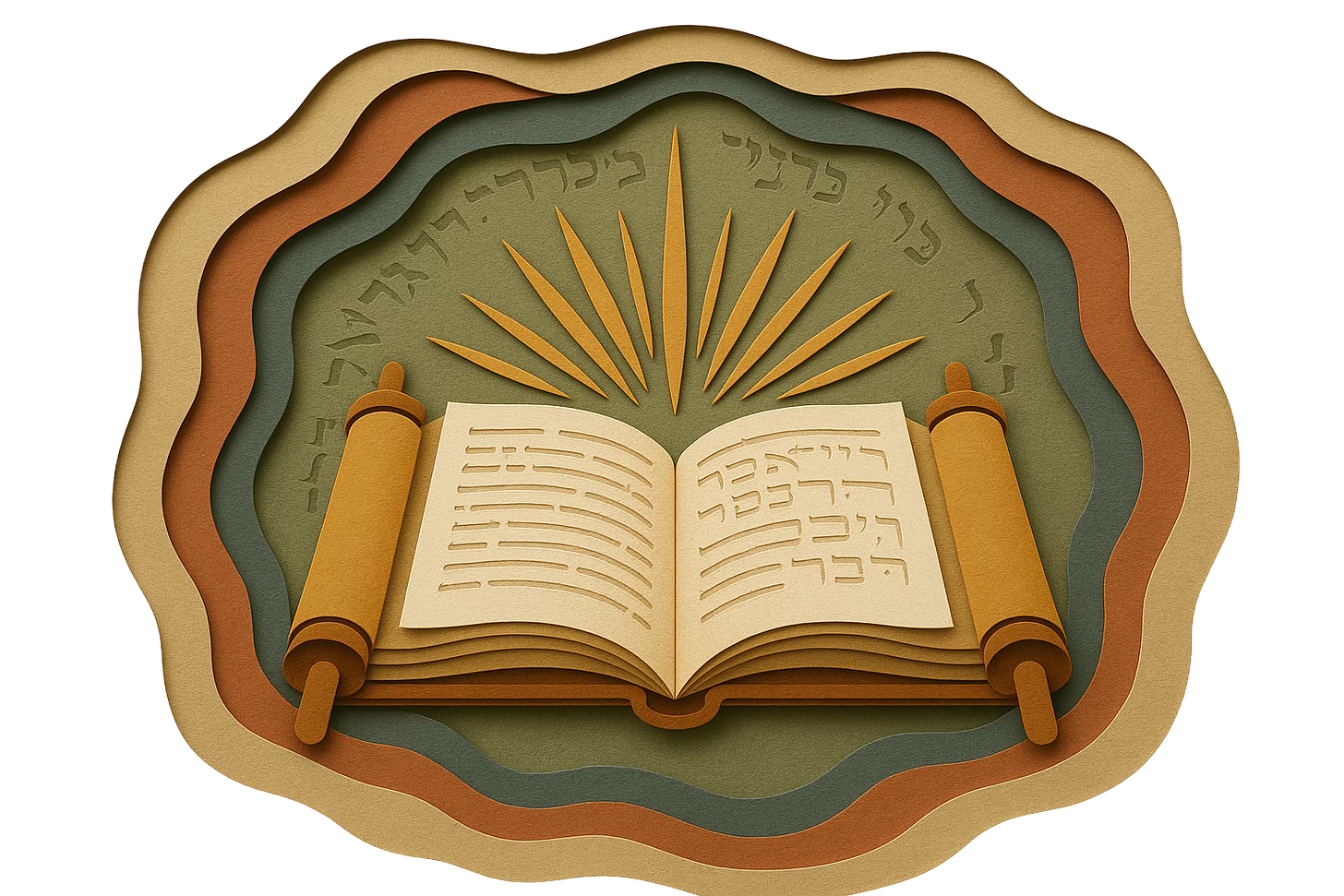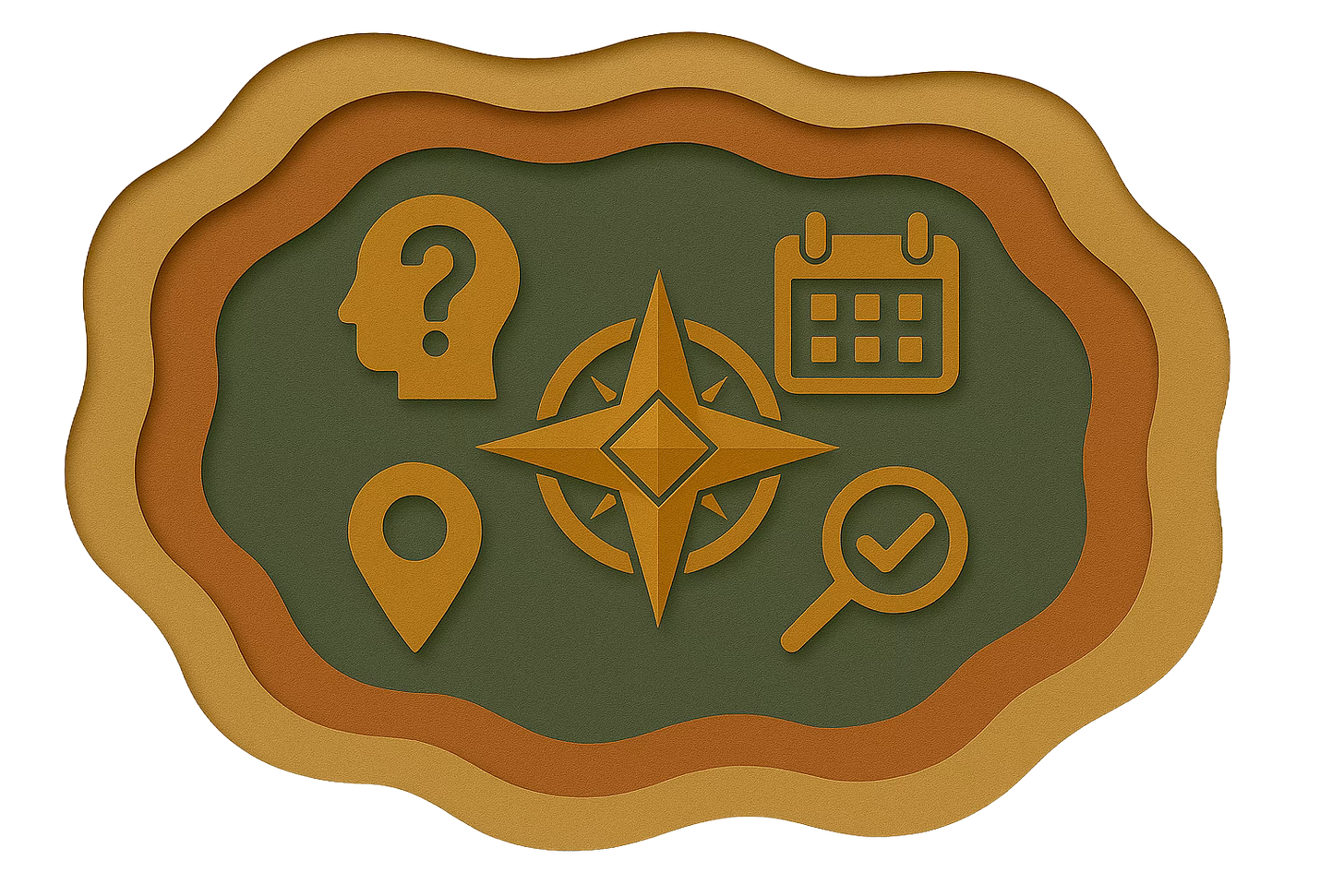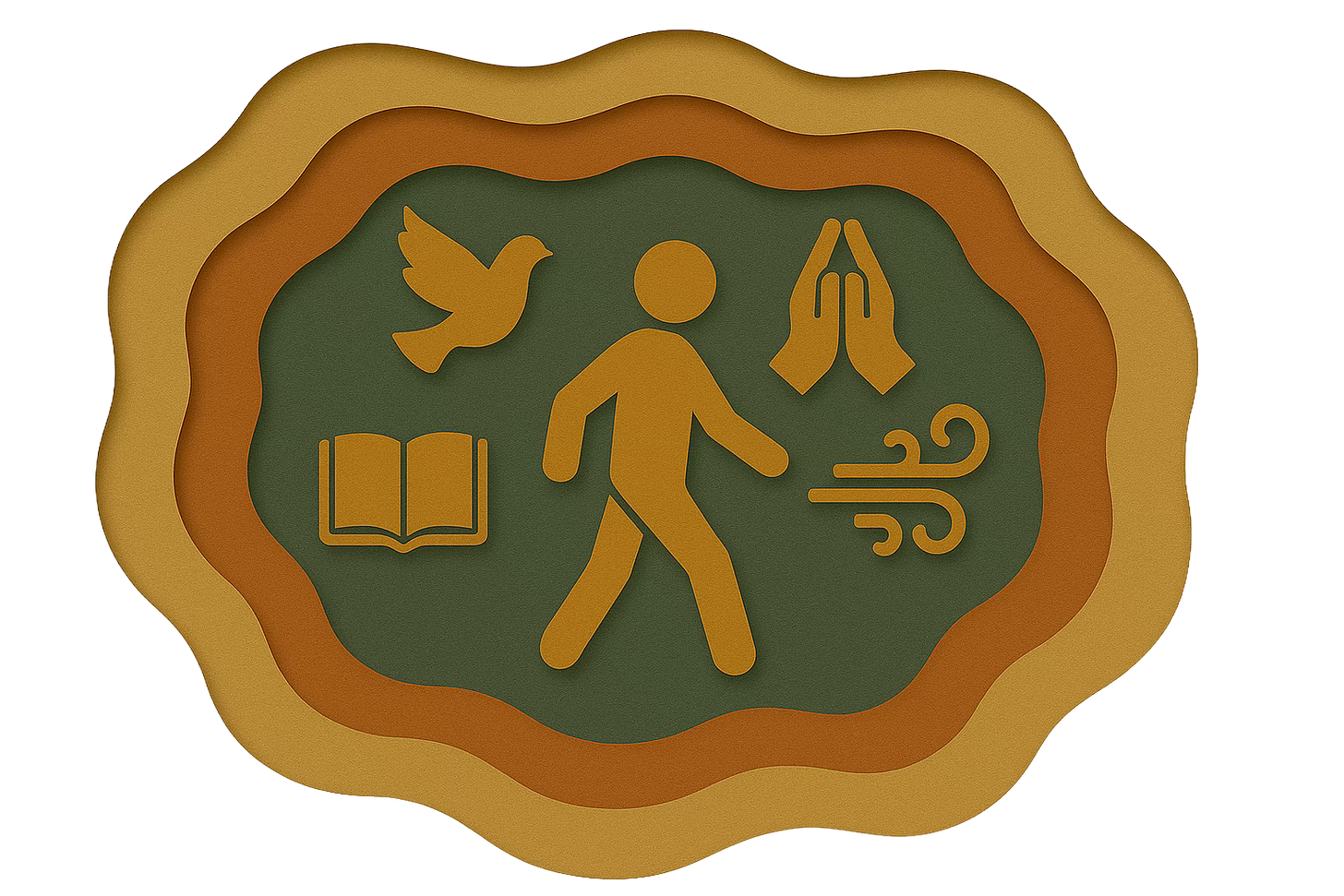The Watchman's Call
Seeing with Spirit , Speaking with Mercy, Standing in Covenant
The Watchman’s Call
Weekly Series | Ezekiel 33
Seeing with Spirit , Speaking with Mercy, Standing in Covenant
What happens when no one speaks up? In a world filled with compromise and chaos, Yah is still appointing watchmen—not just to see, but to warn. Ezekiel was given this charge for Israel. We are given the same today, in our communities, families, and faith spaces.
Imagine standing on a high wall, overlooking a city asleep. You hear distant thunder—not from the sky, but from approaching armies. You feel the urgency rise within you. Yah has shown you the danger. Do you stay silent? Or do you lift your voice?
Ezekiel 33 is the divine call to that wall. After years of warning Israel of judgment, now exiled among them, the prophet is told: "You are still my watchman." But this time, it is not about political destruction—it’s about personal responsibility, repentance, and life.
This passage reminds us that Yah does not delight in condemnation. His warnings are never for punishment’s sake—they are invitations to return, to live, to be restored. And that invitation often comes through us.
The call of the watchman isn’t a relic of the Old Covenant—it’s a shadow of Messiah’s own heart, who wept over Jerusalem and warned His own generation, even unto death.
Scripture: The Living Word
Key Passages:
Ezekiel 33:1–9 – The call and responsibility of the watchman
Ezekiel 33:10–20 – The fairness of Yah’s judgment and the power of repentance
Key Verse:
"As I live, declares the Lord Yahweh, I have no pleasure in the death of the wicked, but that the wicked turn from his way and live; turn back, turn back from your evil ways, for why will you die, O house of Israel?" – Ezekiel 33:11
Context: Behind the Words
Historical Setting
Ezekiel 33 marks a turning point in the prophet’s ministry. Jerusalem had already fallen in 586 BCE—just as he had prophesied. Now living in exile among his people in Babylon, Ezekiel receives a renewed commission. The warning is no longer just about impending national judgment—it’s about ongoing individual responsibility.
The people, devastated and defeated, were tempted to fall into despair or self-justification. Yah meets them with both justice and mercy. He affirms that each soul is accountable—and that repentance is always possible.
The Weight of Accountability
One of the most sobering aspects of this passage is Yah’s insistence that the watchman is not just responsible for seeing danger but for sounding the alarm. If the watchman sees the sword coming and fails to blow the trumpet, the blood of the people will be required at his hand (Ezekiel 33:6). In other words, silence in the face of danger is not neutrality—it is guilt.
This divine principle still echoes in the New Covenant. Yeshua warned His followers of the coming judgment (Luke 12:54–59), wept over the people’s blindness (Luke 19:41–44), and urged His disciples to stay awake and alert (Mark 13:33–37).
The theme is clear: those who know the truth must speak it in love. Silence is not safety—it is disobedience.
Prophetic Transition
Earlier in the book, Ezekiel’s role was to declare what was coming. But now, the tone shifts. He becomes a shepherd among exiles, a voice not just of warning, but of invitation. His words point toward renewal—not just survival.
Key Word Study
Watchman (צָפָה / tsaphah): To look out, observe, and guard with responsibility. This is not passive seeing—it is active vigilance.
Turn/Repent (שׁוּב / shuv): To return, to turn back. A word rooted in covenant—always implying relationship, restoration, and movement toward life.
Blow the trumpet (תָּקַע שׁוֹפָר / taqaʿ shofar): To sound the alarm publicly. In ancient Israel, the shofar was used in war, worship, and warning. Here, it is a divine summons.
Bridge to Today
Ezekiel’s calling didn’t end in exile—and neither does ours in the modern world. Today, we live among people spiritually exiled: numb, distracted, or deceived. We are called to see with spiritual eyes and speak with prophetic clarity. To sound the trumpet—not with condemnation, but with compassion.
The world doesn’t just need more opinions. It needs watchmen—those who listen to Yah, live in integrity, and love people enough to warn them when danger comes near.
Let us not fear accountability—let us embrace it. Because Yah does not call us to bear this burden alone. He equips, sustains, and empowers those He calls to the wall.
Covenant: Relational Core
Yah’s covenant is rooted in shared responsibility—not isolation. The watchman’s role isn’t merely prophetic—it’s relational. It’s about living in a community where seeing and saying are acts of love. Ezekiel is not held accountable for whether people listen; he’s held accountable for whether he speaks. That’s covenant: knowing that what Yah reveals to you is not just for you, but for others through you.
We are reminded here that silence in the face of sin, deception, or danger is not neutrality—it’s disobedience. Yah's covenant people are called to be actively engaged in guarding one another, just as He watches over us.
Messianic Fulfillment
Yeshua is the ultimate fulfillment of the watchman’s role. He didn’t stay silent in the face of sin—He confronted it with truth, grace, and sacrifice. He wept over Jerusalem’s blindness (Luke 19:41–44), warned of coming judgment, and laid down His life so that others might live.
Then He passed on the charge:
"Go therefore and make disciples of all nations... teaching them to observe all that I have commanded you." (Matthew 28:19–20)
Paul carried this covenantal weight:
"I am innocent of the blood of all, for I did not shrink from declaring to you the whole counsel of God." (Acts 20:26–27)
James affirms that our covenant role includes restoration:
"Whoever brings back a sinner from his wandering will save his soul from death and will cover a multitude of sins." (James 5:20)
The Watchman Today
We are no longer stationed on physical city walls, but we stand watch in spiritual spaces—in families, friendships, and fellowships. The New Covenant calls us to “exhort one another daily” (Hebrews 3:13) and to speak truth in love.
Some in the Body are uniquely gifted with spiritual discernment. They have been given eyes to see what others overlook, and ears to hear what others dismiss. These are modern-day watchmen—men and women who sense the schemes of the enemy before they manifest, who grieve over compromise in the camp, and who speak up not to condemn, but to call back.
This gift is not to be feared or envied—it is to be honored. For those caught in deception, drifting toward danger, or numbed by the world, the watchman’s cry can be a lifeline. A gift of grace.
To be a watchman is to listen closely to Yah, to love people enough to speak up, and to be present with them in their process. It’s not about shouting from above; it’s about walking beside—watching, warning, weeping, and waiting.
We don’t have to be watchmen. We get to be.
It’s not a position of superiority. It’s an act of covenant faithfulness.
And for those trapped in darkness, it might be the very voice that calls them into the light.
Practice: Living it Out
Modern Example
Think of a mother warning her child not to run into the street—not to control them, but to protect them. Her warning flows from love, not condemnation. This is the spirit of the watchman. It’s not about yelling judgment, but about sounding an alarm because you care deeply. We don’t warn to shame—we warn to save.
Three Takeaways
Yah values life and delays judgment to give space for repentance.
We are responsible for what we see—and for what we remain silent about.
Love sometimes looks like warning, especially in a covenant community.
Ways We Get to Obey Yah – and Be Watchmen:
Discussion Questions
What keeps us from speaking up when we see spiritual danger?
How can we offer warnings in love instead of judgment?
Who has played the role of a watchman in your life—and what did you learn from them?
Seven-Day Practice Rhythm
Closing Blessing
May Yah open your eyes to see as He sees—and your heart to feel as He feels. May you be bold when others shrink back, tender when others harden, and faithful when others fall silent.
May your voice carry the sound of the shofar—not in anger, but in mercy. And may you stand watch not from fear, but from love—until all who are wandering return to the safety of His covenant.
Amen.






